Summary
Introduction
Do you cover your coughs and sneezes? How far do you think the droplets can travel if you do not cover them? Why is this important to help prevent the spread of diseases like COVID-19? Try this activity to find out!
Materials
- Spray bottle
- Water
- Newspaper
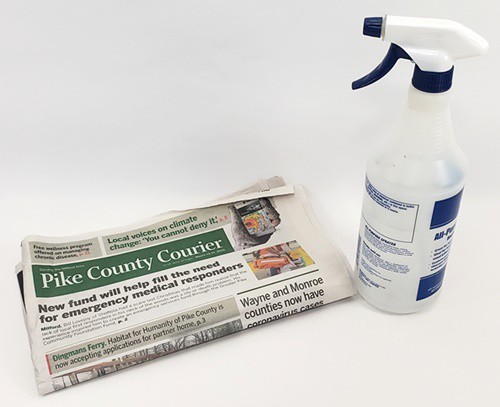 Image Credit: Ben Finio, Science Buddies / Science Buddies
Image Credit: Ben Finio, Science Buddies / Science Buddies
Prep Work
- If you are re-using a spray bottle filled with cleaning fluid, have an adult thoroughly rinse it out before you start the activity.
Instructions
- Fill the spray bottle with water.
- Cover the floor with newspaper.
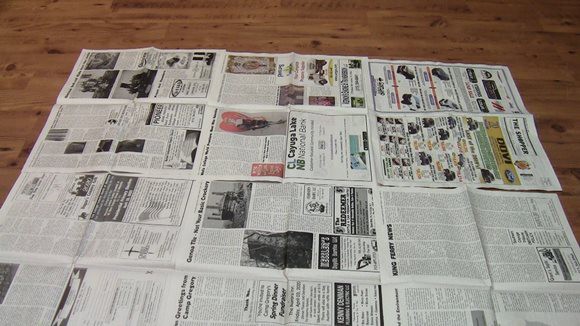 Image Credit: Ben Finio, Science Buddies / Science Buddies
Image Credit: Ben Finio, Science Buddies / Science Buddies
- Hold the spray bottle above the newspaper.How far do you think the water droplets will travel when you spray?
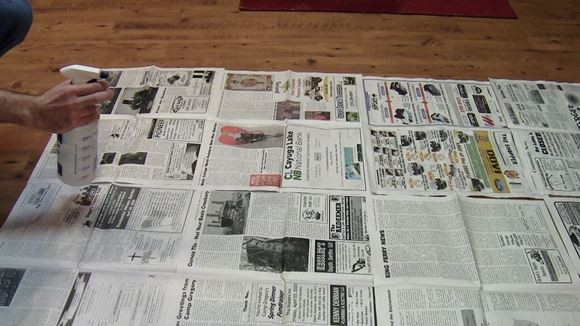 Image Credit: Ben Finio, Science Buddies / Science Buddies
Image Credit: Ben Finio, Science Buddies / Science Buddies
- Squeeze the handle a few times.Can you see how far the droplets go?
- Continue spraying water until the newspaper is visibly damp.Does your "sneeze" go as far as you expected it to?
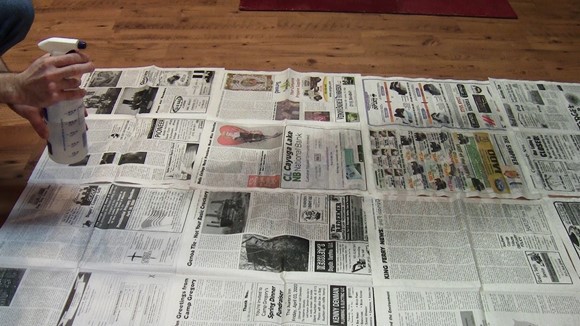 Image Credit: Ben Finio, Science Buddies / Science Buddies
Image Credit: Ben Finio, Science Buddies / Science Buddies
- Try to stop the sneeze from spreading.What happens if you cover the bottle's nozzle with a tissue or your elbow?
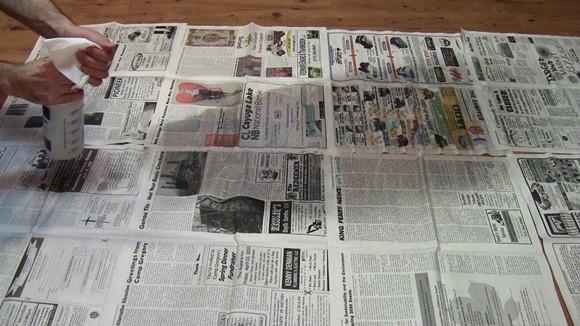 Image Credit: Ben Finio, Science Buddies / Science Buddies
Image Credit: Ben Finio, Science Buddies / Science Buddies
Why do you think the CDC recommends staying at least 6 feet away from someone who is coughing or sneezing? |
Cleanup
What Happened?
If you only spray the bottle a few times, you might not think the water travels that far. The mist created by the bottle is very fine, and hard to see in the air. A small amount of water also does not get the newspaper very wet. However, as you spray more and more water, the newspaper will start to get soaked, and turn a darker gray. Once the newspaper gets wet enough, you can see that the droplets of water actually travel several feet! Read the Digging Deeper section to learn more.
Digging Deeper
According to the Centers for Disease Control and Prevention (CDC), COVID-19 spreads primarily through "people who are in close contact with one another (within about 6 feet)" and "through respiratory droplets produced when an infected person coughs or sneezes." This can also be true for other infectious diseases like the flu and common cold. This is why good hygiene practices like thoroughly washing your hands and covering your coughs/sneezes are very important to help prevent the spread of disease. With coughing and sneezing, some of the droplets you produce can be too small to see, so it is not obvious how easily and how far they can spread! This activity gives you a way to visualize how far the droplets can spread by looking at the damp newspaper.
Watch this video to learn more about the science behind sneezes:Ask an Expert
For Further Exploration
- What happens if you sneeze "harder" by squeezing the bottle's handle faster?
- How do your results change if you change the height of the bottle above the ground? Try standing up and holding it at face level.
- What happens if you do the experiment in a room with air currents? Try opening some windows or turning on a fan.












